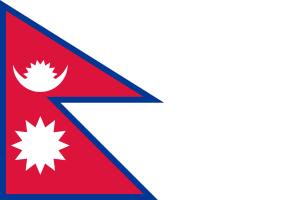Language/Nepali-individual-language/Grammar/Interrogatives-in-Nepali
Interrogatives in Nepali
Asking questions is an important aspect of any language, and Nepali is no exception. In this lesson, we will learn about the different types of interrogatives in Nepali, how to use them, and some cultural information related to question formation in Nepali.
Types of Interrogatives
In Nepali, there are three types of interrogatives:
- Yes-No Questions: These are questions that can be answered with a simple "yes" or "no".
- WH-Questions: These questions seek specific information and can be answered with words like "who", "what", "where", "when", "why", and "how".
- Choice Questions: These questions offer options and ask the listener to make a choice between them.
How to Use Interrogatives in Nepali
The usage of interrogatives in Nepali is similar to other languages. Here are some examples of how to use interrogatives in Nepali:
Yes-No Questions
Yes-No questions in Nepali are formed with the particle "cha" or "chaina" at the end of a statement. Here are some examples:
| Nepali (individual language) | Pronunciation | English |
|---|---|---|
| तपाईँले काम गर्नुभयो। के छ? | tapā'īle kām garnubhayo. ke cha? | You did the work. Did you? |
| तपाईँले नेपाली सिक्नुहुन्छ। के छैन? | tapā'īle nepālī siknuhunchha. ke chaina? | You learn Nepali. Don't you? |
WH-Questions
WH-questions in Nepali are formed by using the question word before the verb. Here are some examples:
| Nepali (individual language) | Pronunciation | English |
|---|---|---|
| तपाईलाई नेपाली कसरी सिक्ने? | tapā'īlā'ī nepālī kasarī sikne? | How do you learn Nepali? |
| कति बजे हो? | kati baje ho? | What time is it? |
Choice Questions
Choice questions in Nepali are formed by offering options and asking the listener to choose between them. Here are some examples:
| Nepali (individual language) | Pronunciation | English |
|---|---|---|
| टेनिस खेल्नुपर्यो, वा फुटबल खेल्नुपर्यो? | ṭenisa khelnu'paryo, vā phuṭabal khelnu'paryo? | Do you play tennis or football? |
| मैले गाडीको लागि पानी खरिद्दिनुपर्यो, वा तेल खरिद्दिनुपर्यो? | maile gāḍīko lāgi pānī khariddinuparyo, vā tel khariddinuparyo? | Did I buy water for the car or oil? |
Interrogatives and Nepali Culture
Asking questions is an important aspect of Nepali culture. Nepali people are very friendly and enjoy conversation. This means that Nepalis will often use questions to start a conversation or to learn more about someone, even if they already know the answer or if the answer is not important.
Additionally, Nepali culture has a strong emphasis on politeness and respect. When asking questions, it is common to use honorifics and polite language, especially when speaking to someone older or in a position of authority.
Conclusion
Interrogatives are an essential part of any language, and Nepali is no exception. In this lesson, we learned about the different types of interrogatives in Nepali, how to use them, and how they relate to Nepali culture. By practicing these question forms, you will be able to confidently and politely ask and answer questions in Nepali. Keep practicing!
Congratulations on finishing this lesson! Explore these related pages to keep learning: Pronouns in Nepali & Verbs kriyaharu क्रियाहरू.
Other Lessons
- Verbs kriyaharu क्रियाहरू
- Introduction to Nepali Nouns
- Pronouns in Nepali
- Past Tense in Nepali
- Future Tense
- How to Use Have
- Pronouns
- 0 to A1 Course
- Comparison of Adjectives in Nepali

